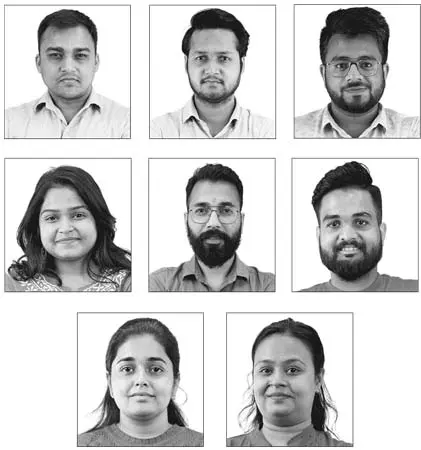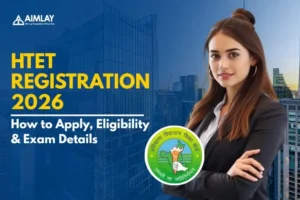We Take Privilege To Introduce Aimlay Educational Academy For Regular & Distance Studies
Aimlay’s Educational Academy involves procedural UG and PG Admissions while ensuring its completion and learnings that come along with it.
Connect with Aimlay
Enter Your Details
We Take Privilege To Introduce Aimlay Educational Academy For Regular & Distance Studies
Aimlay’s Educational Academy involves procedural UG and PG Admissions while ensuring its completion and learnings that come along with it.
Connect with Aimlay
Enter Your Details
AImlay Educational Academy
With the help of professional counselors, we guide the working professional to pursue their professional courses and choose the right career option. Our organization is tied up with some of the top major Indian Universities. We are engaged into offering admission guidelines and educational academy consultancy services for Indian Universities.
For the Educational Aspirants along with sincere Working Professionals. We help them to familiarize themselves as well as upgrade their Academic Profile simultaneously.
With our team of professionals, the working professional faces minimum problems and experiences a relaxing course period as we are always available to clear their doubts and issues. Professional counsellors are made available by Aimlay to ease their minds and guide them to select the right courses and universities for them – right courses with our educational academy.
Educational Academy - Key Features
We provide education that transforms ideas into actions, opportunities into global advantage, capabilities into successful career and dreams into realities
The Significance of our Educational Academy
A Candidates’ Education involves Three Levels:
Undergraduate:
Undergraduate studies involve a bachelor’s degree. It takes 3-4 years to complete. The course is divided into two parts, the first two years are mainly focused on the fundamentals of the subject, and the second two years focus on specialization in a specific field of study.
Sr.Secondary:
Sr. Secondary studies are the second level of secondary education in India. It is known as High School Course or Class XI. The syllabus and the number of subjects studied depends upon the board (or board) and state. This type of school is mainly for those students who have completed their primary education and now ready to go for advanced education.
Post-Graduate:
Post Graduate studies involve specialization in a particular field of study. These courses take four years to complete depending on the system chosen by the Aspirants and their capabilities to meet it in the time frame specified for it.

Secondary & Sr. Secondary

Undergraduate Degrees

Postgraduate Degrees
Talk to our Experts
Support

![]() Phone Number: +91-9821664888
Phone Number: +91-9821664888![]() WhatsApp Number: +91-7428197667
WhatsApp Number: +91-7428197667![]() Email: info@aimlay.com
Email: info@aimlay.com![]() Visit Us: 9:30 AM to 8:30 PM (IST)
Visit Us: 9:30 AM to 8:30 PM (IST)
Our team of experts are available for you round the clock.

FAQ’s on Educational Academy
The undergraduate and postgraduate studies are the two different education categories in India. These two categories are further divided into various streams. Undergraduate studies are those which prepare the student for his future career. In contrast, postgraduate studies provide them with advanced degrees such as Master’s, Doctorate, and Ph.D. degrees.
In India, many universities offer UG and PG academic programs. The Indian Institute of Technology (IIT) is one of the best engineering colleges in India. Many other universities like IISc Bangalore offer good quality programs like MSc Computer Science, MSc Biotechnology, etc.
Undergraduate courses cover basic subjects like Mathematics, Physics, and Chemistry, among others. Courses offered by university include BSc Computers Science, BA English Literature, BA Political Science, etc. Postgraduate courses include MS Computer Science, MS Biotechnology, etc.
- Undergraduate and postgraduate studies in India are two different types of degrees. The main difference between undergraduate and postgraduate studies is that the former does not require any previous knowledge of a subject, whereas the latter requires knowledge of a subject.
- Universities offer an undergraduate degree after the completion of 12 years. It is equivalent to a two-year diploma or bachelor’s degree. A student who has cleared the entrance exam for an undergraduate course must complete an additional three years to earn a bachelor’s degree.
- The course structure for undergraduate courses varies from one university to another but typically includes subjects such as physics, chemistry, mathematics, biology, etc.
- Post-graduation in India means that you have completed your studies and are looking for employment opportunities in your field of study. Most post-graduation courses are dual credits (equivalent to one semester) or shorter in duration than those offered by colleges or universities in India.
They are known as Bachelor’s degree programs:
A Bachelor of Arts (BA) degree is required for admission to a first-professional program in the University. The BA degree typically requires four years of study and is structured as follows:
- First year: foundational courses, including mathematics, English and history
- Second year: major courses and electives
- Third year: additional major courses or other related course work to complete the major requirements
- Fourth year: comprehensive examinations or thesis/project (if applicable*)
Students may choose to complete a thesis/project during their fourth year if they wish to pursue this option. A thesis/project must be approved by their academic dean before being submitted for examination. Thesis/projects are completed in consultation with a faculty advisor.
Undergraduate and postgraduate study provides a range of opportunities for you to develop your knowledge, skills and abilities in a wide range of areas. You will be encouraged to consider a range of options for further education and training as well as professional development.
Your course will enable you to develop your skills in areas including:
- business, accounting, management and marketing;
- humanities;
- engineering;
- health and social care;
- law;
- technology;
- teaching;
- Designing.
The PG certification course is for candidates who have completed their degree and are looking to become a professional in their field. Candidates must be able to demonstrate proficiency in English, mathematics, science and communication skills. The exam consists of multiple-choice questions that test the candidate’s knowledge of various aspects of the profession.
The eligibility criteria for the PG certification course includes:
- Holders of a Bachelor’s degree with at least two years of work experience
- Holders of a Master’s degree with at least two years of work experience
- Holders of other academic qualifications such as MBA, MSc or PhD (post-doctoral) degrees may also be eligible to apply if they have a minimum of seven years’ work experience in the field.
The time taken to complete a UG course depends on the course and the duration. It is generally said that a three-year degree takes four years to complete, but this is not true for most courses.
The majority of UG courses require three years to complete and will award you a Bachelor’s degree after the completion of these three years. However, there are some courses which have been designed to be completed in one year or less. These are known as short courses or fast track courses.
Exams for the PG Certification course will be held in January and July of each year. Max. Graduate in any discipline or fourth and fifth year students of a five-year integrated LLB program who have completed three years. Degrees in science/technology/medicine, law, and fourth and fifth year integrated LL.B. students who completed three years.
Shaping Futures, Across the Globe
Our counselors now hail from across the world









